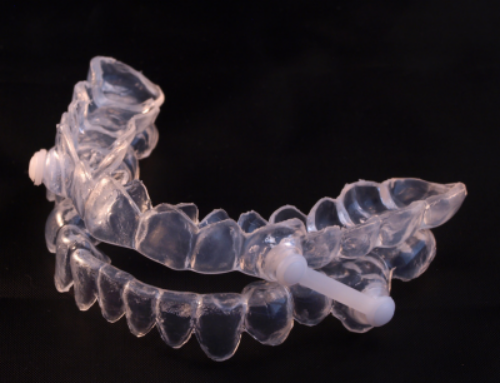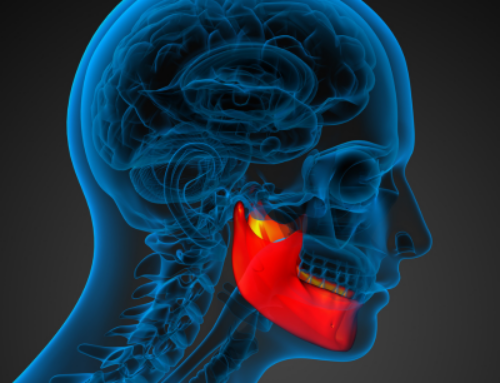 Temporomandibular joint (TMJ) disorders can cause significant discomfort, affecting various aspects of daily life. One crucial but often overlooked factor in managing TMJ pain is your sleep position. How you sleep can either alleviate or worsen TMJ symptoms, making it essential to consider optimal sleep practices. At Virginia Sleep & TMJ Therapy, we emphasize a comprehensive approach to TMJ care, including how sleep positions can impact your condition. This blog explores how different sleep positions affect TMJ disorders and offers practical recommendations for our patients in Richmond, East Highland Park, Lakeside and Mechanicsville, VA for sleeping more comfortably.
Temporomandibular joint (TMJ) disorders can cause significant discomfort, affecting various aspects of daily life. One crucial but often overlooked factor in managing TMJ pain is your sleep position. How you sleep can either alleviate or worsen TMJ symptoms, making it essential to consider optimal sleep practices. At Virginia Sleep & TMJ Therapy, we emphasize a comprehensive approach to TMJ care, including how sleep positions can impact your condition. This blog explores how different sleep positions affect TMJ disorders and offers practical recommendations for our patients in Richmond, East Highland Park, Lakeside and Mechanicsville, VA for sleeping more comfortably.
Understanding the Impact of Sleep on TMJ Disorders
TMJ disorders involve issues with the jaw joint and surrounding muscles, which can lead to symptoms like jaw pain, headaches, earaches and muscle tension. Because the TMJ is sensitive to pressure and alignment, the position of your head and neck during sleep can significantly impact your symptoms.
Poor sleep positions can exacerbate TMJ pain by increasing pressure on the joint or misaligning the head and neck. Conversely, the right sleep positions can reduce strain and promote better alignment, leading to less pain and a more restful night’s sleep.
Sleep Positions to Avoid with TMJ Disorders
Certain sleep positions can worsen TMJ symptoms by putting additional strain on the jaw and neck. Here are some positions to avoid:
Stomach Sleeping
Sleeping on your stomach is generally the least favorable position for TMJ sufferers. This position typically requires turning your head to one side, which can place unnecessary stress on the jaw and neck muscles. Additionally, stomach sleepers often rest their face on their arms or a pillow, further aggravating TMJ symptoms. This position can cause your jaw to become misaligned and increase morning stiffness and pain.
Side Sleeping with Hand Under Head
Side sleeping can also be problematic if you tuck your hand or arm under your head. This can push your jaw to one side, causing imbalance and added pressure on the TMJ. Over time, this misalignment can worsen TMJ discomfort and lead to additional issues with your jaw and neck.
Poor Neck Support
Regardless of your sleep position, inadequate neck support can contribute to TMJ pain. If your neck isn’t properly supported, your jaw may shift during the night, leading to discomfort upon waking. A lack of proper support can disrupt spinal alignment and increase tension in the jaw and neck.
Optimal Sleep Positions for TMJ Relief
To alleviate TMJ pain, consider these sleep positions that help maintain proper alignment and reduce pressure on the jaw:
Back Sleeping
Sleeping on your back is generally the best position for TMJ relief. In this position, your head, neck, and spine remain in a neutral alignment, reducing strain on the jaw. This allows the TMJ to rest in a natural position, minimizing pressure and muscle tension.
To enhance comfort while back sleeping, use a supportive pillow that keeps your head and neck aligned with your spine. A pillow that supports the natural curve of your neck without tilting your head forward can help maintain proper alignment and reduce jaw strain.
Side Sleeping with Proper Pillow Support
If you prefer side sleeping, ensure you use a pillow that provides adequate support for your head and neck. Choose a pillow that keeps your head aligned with your spine, avoiding the need to tuck your hand or arm under your head. Placing a pillow between your knees can also help maintain spinal alignment and reduce tension in your upper body and jaw.
When side sleeping, alternate sides throughout the night to avoid putting consistent pressure on one side of your jaw. This can help prevent additional strain and promote more balanced support for your TMJ.
Choosing the Right Pillow for TMJ Relief
The right pillow can make a significant difference in managing TMJ symptoms. Consider these types of pillows to support your TMJ health:
- Memory Foam Pillows: Memory foam pillows contour to the shape of your head and neck, providing customized support that can help reduce pressure on the jaw.
- Cervical Pillows: Designed to support the natural curve of the neck, cervical pillows are ideal for back sleepers and can help maintain proper alignment.
- Adjustable Loft Pillows: These pillows allow you to adjust the height and firmness to find the perfect level of support for your head and neck, ensuring optimal alignment.
Additional Tips for TMJ-Friendly Sleep
In addition to choosing the right sleep position and pillow, consider these tips to enhance TMJ comfort during sleep:
- Use a Night Guard: If you grind your teeth or clench your jaw at night, a custom night guard can help protect your teeth and reduce pressure on your TMJ.
- Incorporate Relaxation Techniques: Stress and muscle tension can worsen TMJ symptoms. Incorporate relaxation techniques such as deep breathing, meditation, or gentle stretching before bed to help ease tension in your jaw.
- Maintain a Consistent Sleep Schedule: Irregular sleep patterns can disrupt your body’s natural healing processes. Aim to go to bed and wake up at the same time each day to support overall health and well-being.
TMJ-Friendly Sleep Positions: Request Your Appointment in Richmond, VA Today
The way you sleep can significantly affect your TMJ symptoms. At Virginia Sleep & TMJ Therapy in Richmond, VA, we recommend back sleeping with proper pillow support as the optimal sleep positions for TMJ relief. For side sleepers, choosing the right pillow and alternating sides can also provide comfort. By focusing on proper alignment and supportive sleep position practices, you can reduce TMJ pain and enjoy a more restful night’s sleep. If you’re struggling with TMJ disorders, request an appointment today to explore comprehensive treatment options and improve your quality of life.




